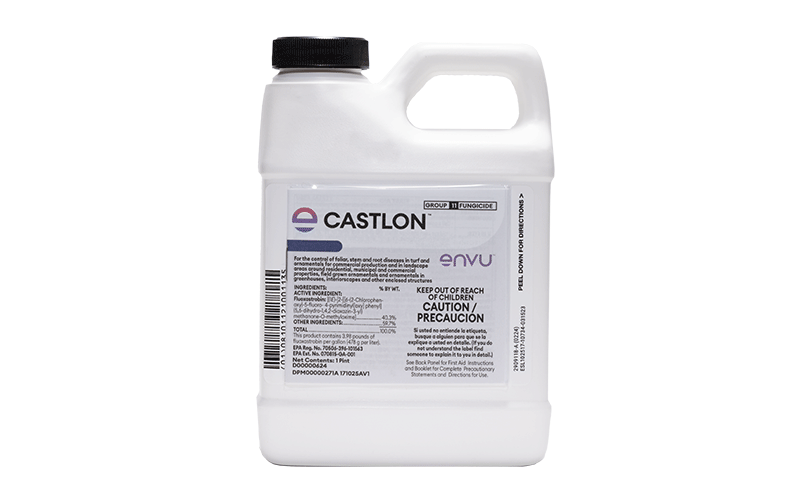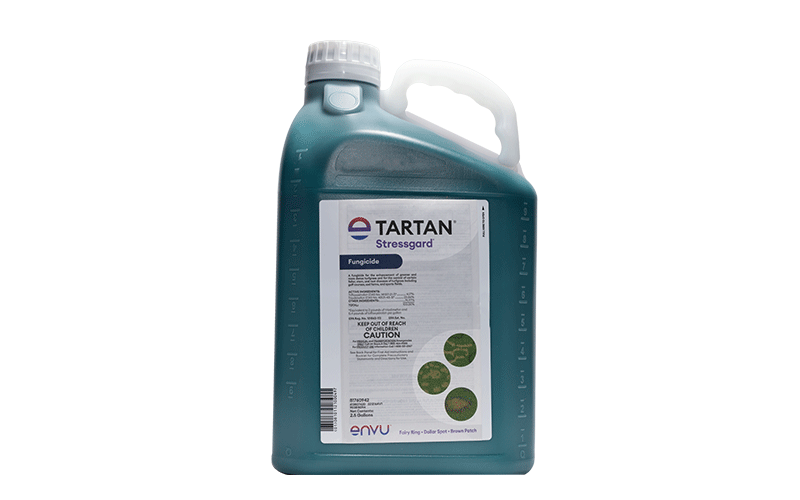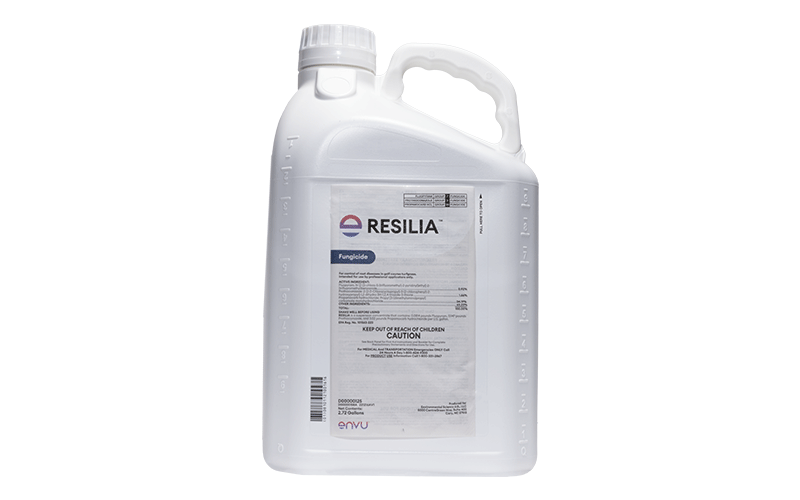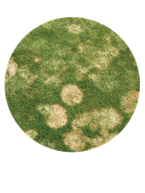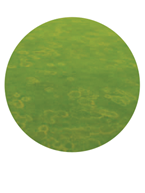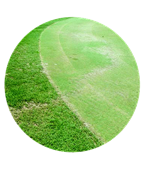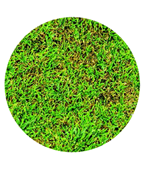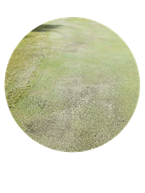The Problem
Summer patch, caused by Magnaporthe poae, is a root, crown and stem disease of annual bluegrass, Kentucky bluegrass and fine fescue that develops under periods of plant stress during warm and hot weather conditions. Summer patch is now also diagnosed on creeping bentgrass. As a root disease, it is difficult to control on acurative basis. Infections typically begin in the spring when soil temperatures are between 65-70°F with symptoms seen in the summer through fall.
What To Look For
Symptoms develop as circular patches or rings of chlorotic turf, 1-3 inches in size that can expand up to 1-3 feet in diameter. On annual bluegrass greens, small patches may coalesce into larger, irregularly-blighted areas. Initial symptoms on turf resemble those of drought stress, with leaves turning grayish-green to reddish-brown or straw-colored. White bands may develop on leaves as a response to heat stress and damaged roots. Creeping bentgrass is often unaffected and will continue to grow in mixed stands with annual bluegrass, Kentucky bluegrass or fine fescues. Roots, crowns and stems of infected plants will show a reddish-brown to dark brown coloration. Microscopic examination will show crown rot and extensive runner hyphae covering roots, especially in stages of advanced infection.
The Solution
Summer patch must be managed by a combination of cultural and chemical controls. Disease is favored by hot, humid weather, high soil moisture, low mowing heights and soil compaction. Although high soil moisture creates conditions for infection, adequate irrigation and syringing are often needed to keep plants with damaged roots alive during summer conditions. Key cultural controls include: relieving compaction with core aerification in the spring and fall, using ammonium fertilizers when applicable, and maintaining soil pH between 5.5 - 6.0. Ammonium-based, acidifying fertilizers appear to reduce symptoms, while nitrate forms increase severity. Urea forms of nitrogen fertilizers seem to have a neutral effect.
Preventive fungicide programs should start when average soil temperatures at a 2-4-inch depth are 65-68°F and should be maintained through late summer. Systemic DMI and QoI fungicides are highly effective against summer patch and can be combined with anthracnose control programs. On annual bluegrass putting greens, QoI resistance may be an issue for anthracnose. In these cases, QoI fungicides will provide control of summer patch but another fungicide class will be needed for anthracnose control.
Key Envu solutions for summer patch include Densicor®, Mirage® or Tartan® Stressgard. Densicor and Mirage Stressgard are two of the most effective DMI fungicides for summer patch control and are also effective against other key pathogens that are active at the same time as summer patch. Tartan Stressgard combines a DMI and QoI fungicide for broad-spectrum disease control. In general, Stressgard products help reduce environmental stresses that promote summer patch. Spring applications of Tartan Stressgard provide summer patch prevention and can provide long-term dollar spot control. Though superintendents tend to avoid most DMI's during the summer, most pathologists agree that DMI use should continue during summer to prevent summer patch symptoms on annual bluegrass greens. Envu's newest DMI fungicide, Densicor, has shown no risk of phyto or growth regulating effects during summer.
Additional resources
| Solution sheet - Summer patch |


